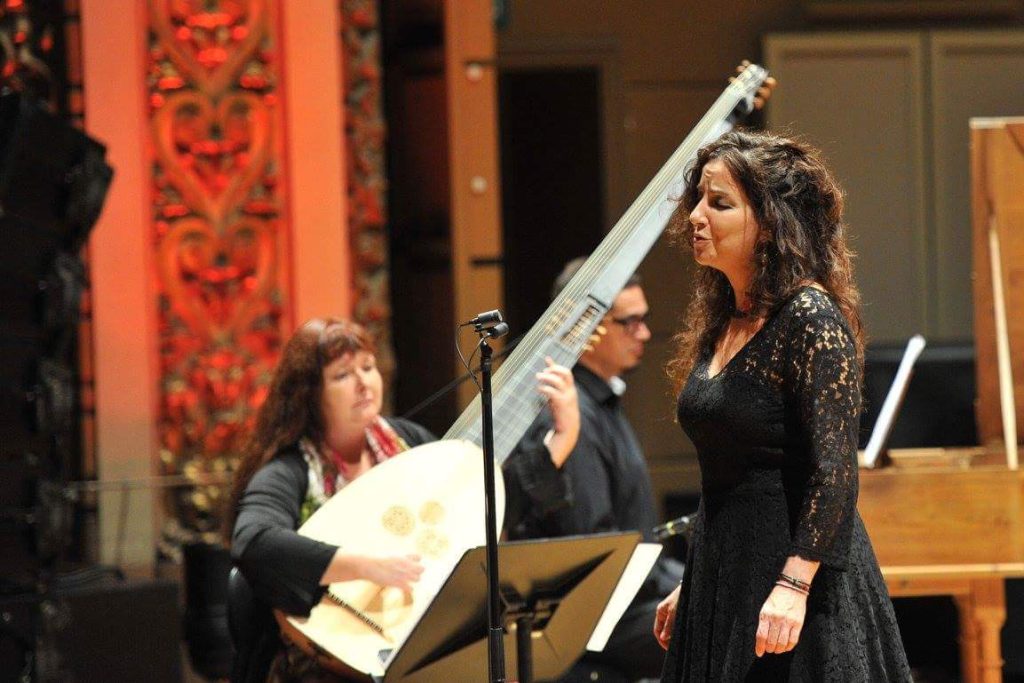Katerina Papadopoulou is a renowned Greek singer who interprets Greek traditional music with her soul and holds it high to cross the rich cultural heritage of her homeland to all parts of the world.
The several-decade-long career of Katerina has always enthralled listeners with a deep attachment to Greece’s eternal melodies and rhythms. In this interview, Papadopoulou shared with us her creative process, work made on the soundtrack of the popular series “Kösem,” the inspiration for the last album, Aura, and speaking about the performance at SoAlive Music Conference 2024 on Wednesday, October 2, at 20:15h (local time) at Kino Cabana, Sofia (Bulgaria).
You are an internationally acclaimed performer of traditional Greek music, imbuing the genre with your soulful voice. How do you keep the spirit of the music alive and make it sound contemporary to today’s audience?
First of all I am honored to hear that.
Regarding Greek music, what I have understood very well is that once you really dive into its depths, you just have to give in. Then this music passes through you and everyone and through every era, so it is always contemporary, you just have to let it happen. What I want to say is that I really let it happen as I feel it, I do not feel I have to do something special in order to “revive.”

You contributed your voice to the soundtrack of the leading TV series “Kösem.” Would you care to share more about it and how that shaped or influenced your musical journey?
It was in 2015, when Aytekin Atas, the composer of Kösem‘s soundtracks, asked me to sing a Greek song for the upcoming serial, Magnificent Kösem. He was very fond of a lullaby that I had previously recorded in another record of mine, “Amygdalaki Tsakisa,” so he proposed to record that again in Istanbul.
I was very enthusiastic to learn that and of course we proceeded.
I could never have imagined the impact that this song would have to millions of people.
Of course it was the combination of the music and the story that gave such a “boost.” So one can see the power that this music has. It only needs the means to reach the audience.
Your latest album, “Aura,” was released earlier this year (2024). What was the inspiration behind the album, and how does it reflect your artistic evolution?
Aura was inspired from the subtle breeze of the Aegean Sea, the Sea that embraces Greece and gives life and strength to its people.
This Aura and this strength are intended to be reflected in this album, in a gentle way, shouting is not the way that I like to protest.
As part of the SoAlive Music Conference 2024 in Sofia this October, what do you hope to share with the audience, and how does performing at festivals like this shape your connection with new listeners? What are you most excited about regarding this event, and what do you expect from it?
Performing in SoAlive Music Conference gives us the opportunity to connect to people that we couldn’t, to reach an audience so neighboring and so similar in music and way of living and to open new paths for music dialogues and collaborations.
Greek traditional music often carries deep cultural and emotional weight. How do you feel your music connects with listeners beyond Greece, and what messages do you hope to convey through your performances?
Greek music indeed carries deep weight, sometimes it can be overwhelming. You need to be strong to carry on. The easy thing to do is to lighten that burden, to “soften” the meanings that this music carries and to give the audience “digestible food.”
One has to choose whether to carry the weight or not.
But once he/she does I strongly believe that the feeling passes beyond languages and countries and whatever difference.
This feeling and this truth I wish to convey.












